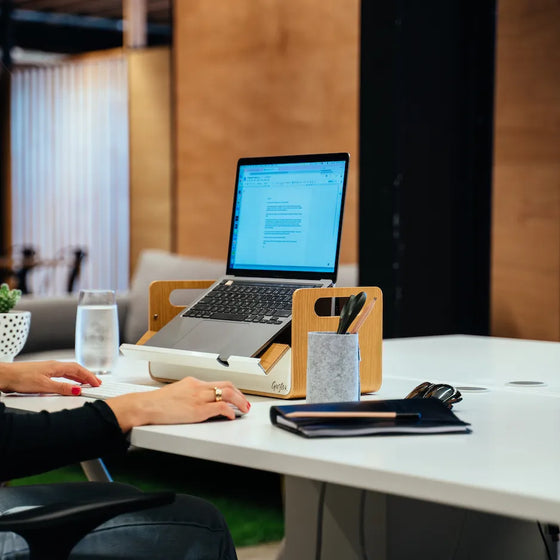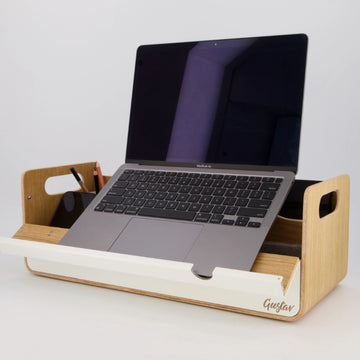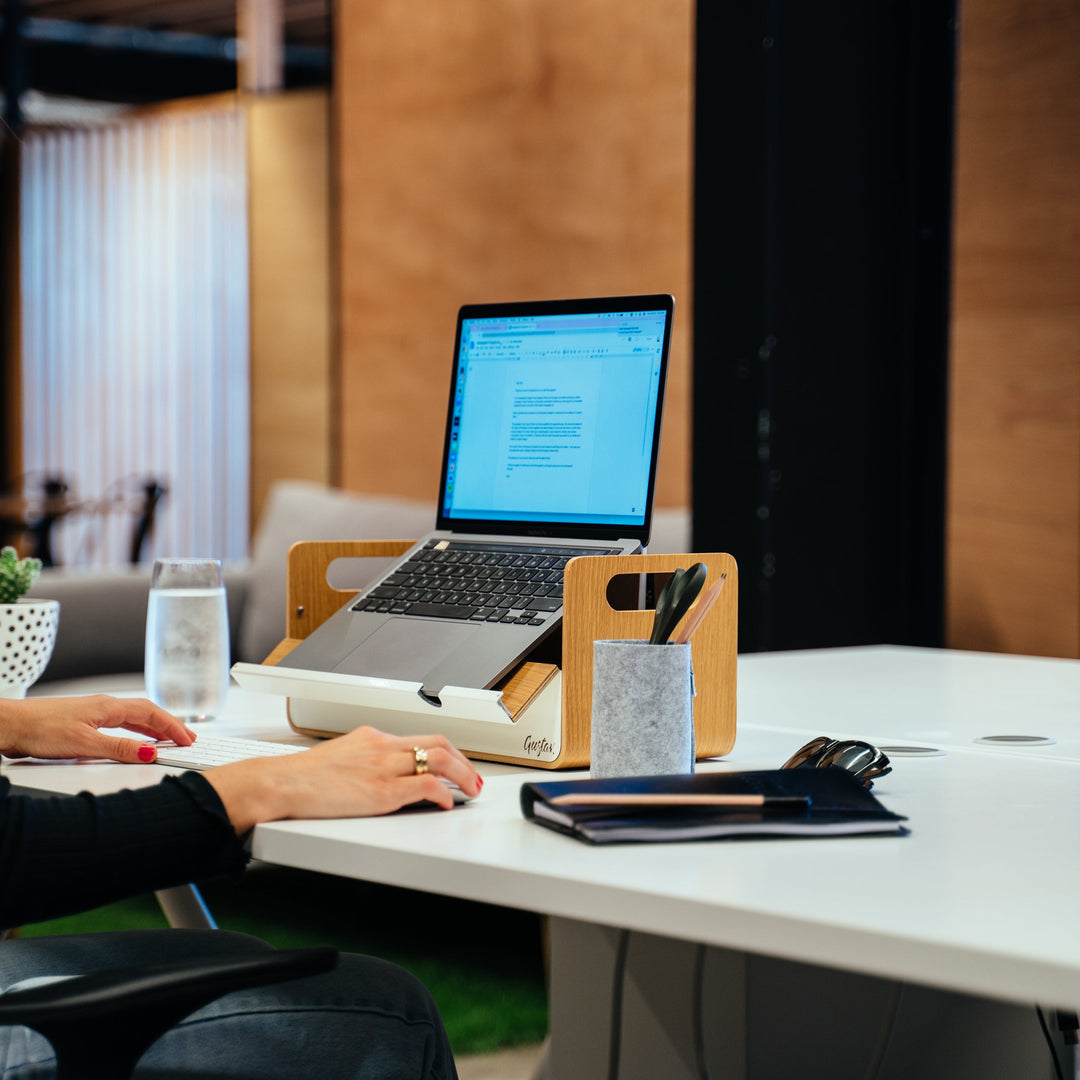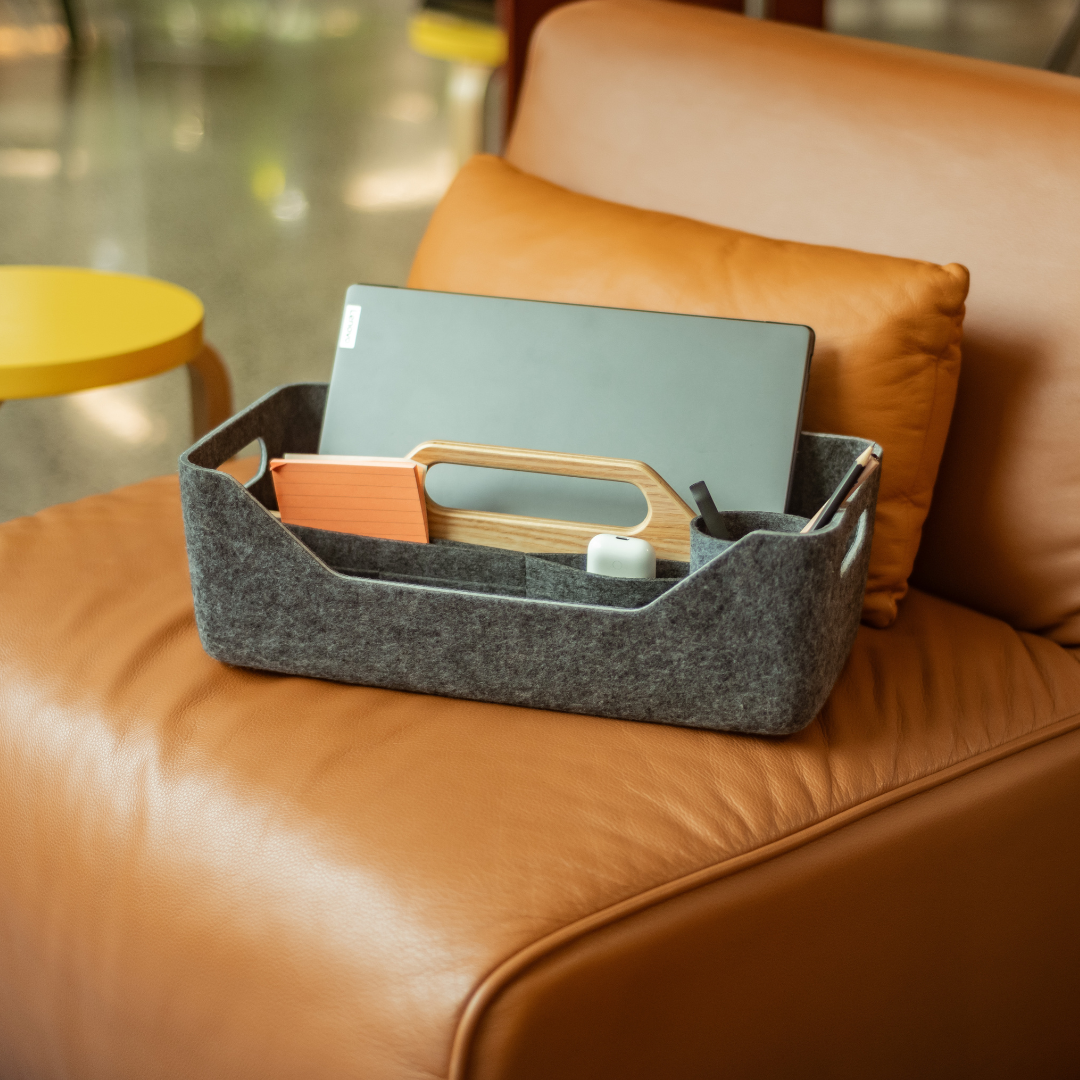Succesvolle Desk Sharing
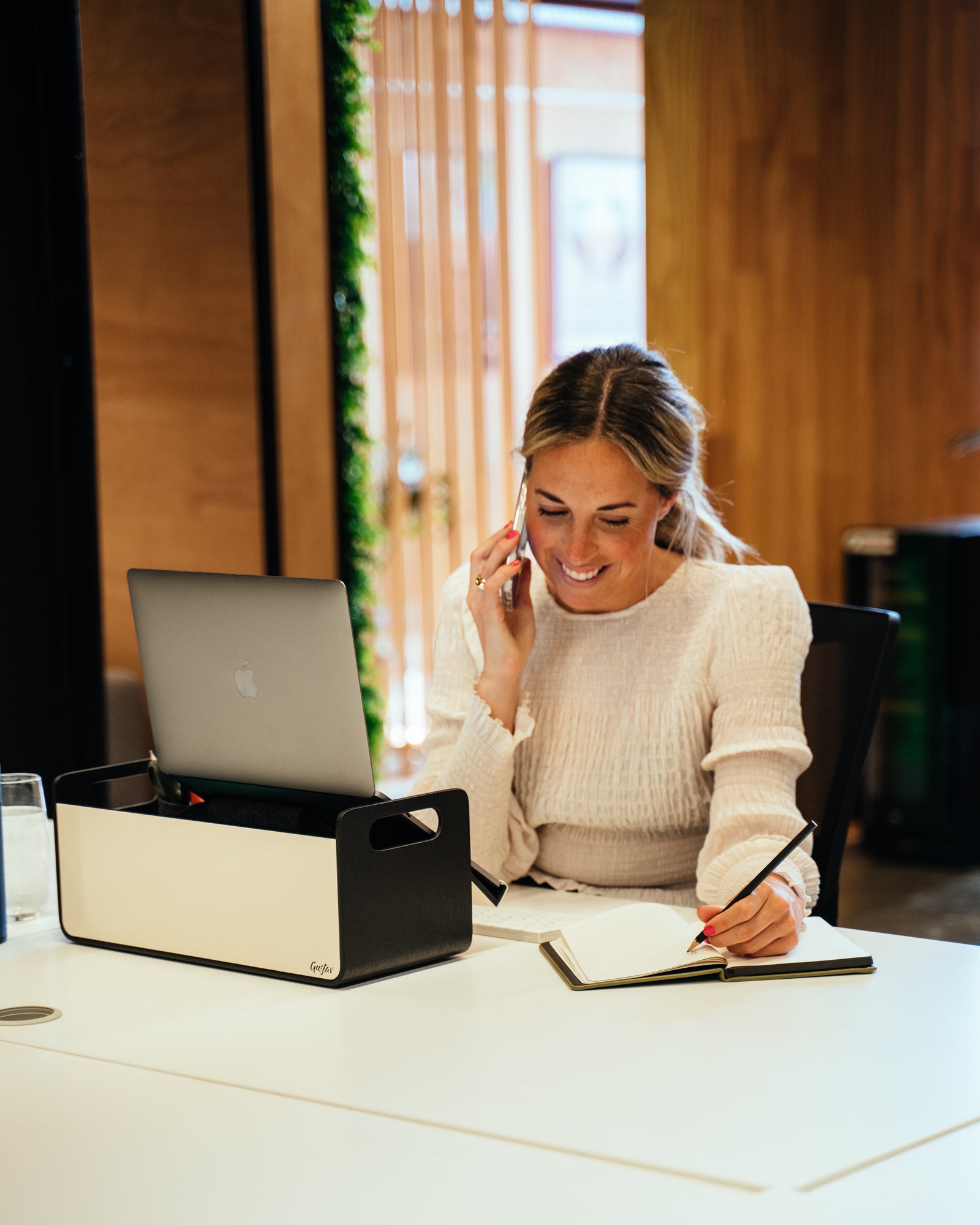
De afgelopen jaren zijn gedeelde kantoren steeds populairder geworden omdat ze een flexibele en kosteneffectieve oplossing bieden voor startups, freelancers en kleine bedrijven. Werken in een gedeeld kantoor kan echter uitdagingen met zich meebrengen, waaronder het handhaven van de productiviteit, het omgaan met afleidingen en effectief samenwerken met anderen. In dit artikel delen we zes eenvoudige hacks om jouw gedeelde kantoor voor iedereen tot een succes te maken.
-
Schep duidelijke verwachtingen: Voordat u naar een gedeelde kantoorruimte verhuist, is het essentieel om duidelijke richtlijnen op te stellen met uw kantoorgenoten. Bespreek de werkuren, het geluidsniveau, het gebruik van de vergaderruimte en de netheid van de gemeenschappelijke ruimtes om misverstanden en conflicten in de toekomst te voorkomen.
-
Creëer een routine: Het opzetten van een dagelijkse routine kan u helpen gefocust te blijven en afleiding te voorkomen in een gedeeld kantoor. Begin uw dag door uw takenlijst te bekijken, prioriteiten te stellen voor uw taken en haalbare doelen voor de dag te stellen. Plan uw pauzes en vergeet niet uw bureau achter u te laten om nieuwe energie op te doen.
-
Respecteer de privacy van anderen: In een gedeeld kantoor is het respecteren van de privacy van anderen van cruciaal belang voor het behouden van een positieve werkomgeving. Kijk niet over de schouder van uw buren mee en onderbreek ze niet als ze aan de telefoon zijn. Gebruik een koptelefoon als u naar muziek wilt luisteren of telefoongesprekken wilt voeren, en vergeet niet uw stem zacht te houden om te voorkomen dat u anderen stoort.
-
Effectief samenwerken: gedeelde kantoren zijn een uitstekende gelegenheid om te netwerken en samen te werken met andere professionals in uw branche. Woon netwerkevenementen bij, stel uzelf voor aan uw kantoorgenoten en zoek naar mogelijkheden om samen aan projecten te werken of bronnen te delen. Samenwerken met anderen kan leiden tot nieuwe zakelijke kansen en uw vaardigheden uitbreiden.
-
Houd het opgeruimd: gedeelde kantoren vereisen dat iedereen zijn steentje bijdraagt om de ruimte opgeruimd en georganiseerd te houden. Ruim na uzelf op in gemeenschappelijke ruimtes, zoals de keuken of de badkamer, en laat uw spullen niet overal rondslingeren. Een schone en georganiseerde werkplek kan u helpen gefocust te blijven en stress te verminderen. Lees tips over hoe u een schoon bureau houdt in ons artikel "Clean Desk Clean Mind"
-
Houd rekening met anderen: gedeelde kantoren zijn een gemeenschap, en rekening houden met anderen kan helpen een positieve werkomgeving te behouden. Vermijd sterk ruikend voedsel, respecteer de ruimte van anderen en wees hoffelijk en vriendelijk tegen uw kantoorgenoten.
Hier volgen enkele voorbeelden van bedrijven die bureaus delen en op activiteit gebaseerde werkmethoden gebruiken:
-
Airbnb: De online reismarktplaats heeft activiteitsgebaseerd werken en bureaudelen omarmd in het hoofdkantoor in San Francisco. De open kantoorruimte van het bedrijf omvat een verscheidenheid aan werkstations, van sta-bureaus tot banken, om tegemoet te komen aan verschillende werkstijlen en voorkeuren. De werknemers van Airbnb hebben de flexibiliteit om te werken waar ze zich het meest productief voelen, of dat nu aan een bureau is, in een loungeruimte of zelfs buiten op het dakterras.
-
Deloitte: Het wereldwijde adviesbureau heeft activiteitsgericht werken geïmplementeerd in veel van zijn kantoren over de hele wereld, waaronder het hoofdkantoor in Amsterdam. Het kantoor van Deloitte in Amsterdam beschikt over een verscheidenheid aan werkruimtes, van privékantoren tot open werkplekken, evenals een scala aan vergaderruimtes en samenwerkingsruimtes. De werknemers van het bedrijf kunnen kiezen waar en hoe ze werken op basis van hun behoeften, voorkeuren en de aard van hun taken.
-
Google: De technologiegigant staat bekend om zijn innovatieve benadering van kantoorontwerp en heeft in veel van zijn kantoren over de hele wereld het delen van bureaus en activiteitsgebaseerd werken omarmd. Het Londense kantoor van Google beschikt bijvoorbeeld over een reeks werkstations, waaronder sta-bureaus, stille cabines en open werkruimtes. De medewerkers van het bedrijf kunnen via een online boekingssysteem een werkplek reserveren en werken waar zij zich het prettigst en productief voelen.
-
Microsoft: De softwaregigant heeft activiteitsgericht werken geïmplementeerd in zijn hoofdkantoor in Redmond, Washington. De campus van het bedrijf beschikt over een scala aan werkruimtes, van privékantoren tot open werkruimtes, evenals een verscheidenheid aan voorzieningen, zoals cafés, fitnesscentra en buitenruimtes. Medewerkers van Microsoft kunnen kiezen waar en hoe ze werken op basis van hun taken, voorkeuren en de aard van hun werk.
Kortom, het delen van bureaus en activiteitsgebaseerd werken worden steeds populairder bij bedrijven van elke omvang en in alle sectoren. Door flexibelere werkregelingen en een verscheidenheid aan werkruimtes te bieden, kunnen deze benaderingen de productiviteit, samenwerking en medewerkerstevredenheid verbeteren.
Clean Desk, Clear Mind: Implementatie van een Clean Workspace-beleid voor flexibele werkomgevingen


